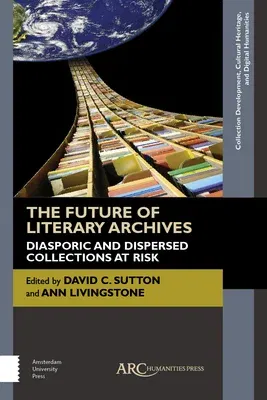The Future of Literary Archives: Diasporic and Dispersed Collections at RiskHardcover, 2 July 2018

Temporarily out of stock
Free Delivery
Cash on Delivery
15 Days
Free Returns
Secure Checkout

Part of Series
Collection Development, Cultural Heritage, and Digital Human
Print Length
174 pages
Language
English
Publisher
ARC Humanities Press
Date Published
2 Jul 2018
ISBN-10
1942401574
ISBN-13
9781942401575
Description
Product Details
Book Format:
Hardcover
Country of Origin:
GB
Date Published:
2 July 2018
Dimensions:
23.62 x
15.49 x
1.52 cm
ISBN-10:
1942401574
ISBN-13:
9781942401575
Language:
English
Location:
Leeds
Pages:
174
Publisher:
Weight:
417.3 gm